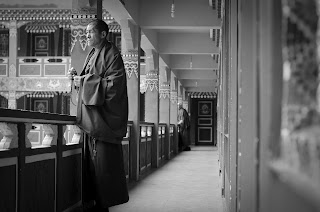Often, when a tragedy such as the massacre in Newtown, Connecticut happens, I hear the statement, “things like this don’t happen here.” I have been pondering this declaration for quite sometime because the truth is, events such as mass shootings don’t happen anywhere... until they do. There is a subtle, or perhaps not so subtle message, which states the tragedy is somehow more devastating because “our community isn’t violent.” I’ve thought carefully about this blog post before sitting down to write it because I’m concerned my perspective might be misconstrued as insensitive. Certainly, when the media imposes itself on a community in the midst of a crisis, people do not spend time scripting how they will respond to a reporter’s questions. The greater likelihood is that people are speaking from their gut. In my opinion, herein lies the problem. If you listen closely, these moments are when we hear raw, unfiltered truth. Thoughts shaped by institutions designed to rank the value of lives.
Like all of you, I remain heartbroken by the senseless violence which took the lives of so many people, most of whom were young children. This could have easily been my sister’s classroom. She teaches at an elementary school on the East coast and without a doubt, she too would have protected the students at all cost. I have a 6 month old nephew; so now, more then ever, I can relate to that gut-wrenching ache at the idea of losing a child. I am not ambivalent to the anguish caused by this massacre or any of the other recent massacres. In fact, I feel just the opposite. I believe we should ALL be outraged by ALL the incidents of violence resulting in lost lives, regardless of where they take place. Yet sadly, the only ones we mourn nationally, and internationally are the lives lost by what we deem unexpected acts of violence. The ones which occur in places where, “things like this don’t happen.”
Throughout my career I have worked in communities where young people often risk their lives walking out the front door of their home. I can tell you the names and describe the smiles of children who had to be escorted to school by groups of parents in an effort to momentarily halt the flurry of bullets fired off during a drug war, children who were literally beaten to death because their self expression didn’t fit someone’s idea of normal, children whose lives were lost by drive-by shootings, children who were awakened in the middle of the night by gun shots, only to find the bodies on their front lawn, and children whose heads were stomped on against the hard concrete in the middle of the night. None of these stories made national news, in fact, most of them didn’t make the local news. These examples are only the ones with whom I have a personal connection. There are thousands more whose stories are never told, and whose lives are only mourned by the few who knew them.
Violence takes the lives of people all over the world, in poor urban neighborhoods, in countries ravaged by war, in oppressive political regimes. In fact, on the very day the mass shooting occurred in Connecticut, a man in China used a knife to attack 22 children as they entered school. Although these children did not lose their lives, in recent years, more than 20 children have died from similar attacks. I didn’t know about this until a Tibetan friend shared the news story. It did not receive major world coverage.
I do not mean to minimize the tragedy of the 26 people who lost their lives in Newtown, Connecticut. Rather, I am asking you to consider increasing the value of the many other lives lost to violence, to the same worth as those receiving national attention. How much value we put on a life dictates how we allocate the resources to support it. This shows up in the way we respond to where tragedies occur, in the quality of schools, and in the way we talk about a community. It is in the subtlety of what we imply with our words and our actions, where the truth is revealed. To me... “things like this don’t happen here,” sounds remarkably similar to “we are not like those people who are violent; we are different.” Yet, it isn’t until we collectively crumble at the loss of all lives that we will ever be able rise from the ashes and build pillars designed to support all our children, not just a privileged few.













